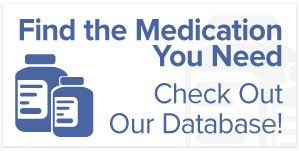What is Acute Coronary Syndrome?
Acute coronary syndrome is an umbrella term used to refer to a range of heart conditions that result from the obstruction of a coronary artery. Coronary arteries help transport blood to the heart, and their blockage causes undue pressure on the heart as it has to work harder to pump blood. This extra effort by the heart can translate into several conditions, such as severe chest pain or a heart attack.
Causes of Acute Coronary Syndrome
Acute coronary syndrome is usually caused by the deposit of a fatty substance called plaque on the artery walls. Plaque causes arteries to narrow and, after a while, blocks them completely. Sometimes, the plaque can also rupture, and blood clots block blood supply to the heart.
Decreased blood supply to the heart means it is starved of the oxygen the blood carries. This oxygen deprivation can cause heart cells to die. The death of heart cells causes heart muscle damage, resulting in a heart attack. Muscle damage does not always result in a heart attack but can lead to other conditions, such as unstable angina.
All these conditions fall under acute coronary syndrome.
Symptoms of Acute Coronary Syndrome
Acute coronary syndrome starts showing symptoms when significant damage to the coronary arteries has already happened. This means that the symptoms are usually abrupt and need urgent medical assistance. These symptoms include:
- Shortness of breath
- Sudden increase in body temperature and heavy sweating
- Chest pain which feels like increased pressure or tightness
- Feeling dizzy or fainting
- Vomiting
- Feeling restless
- Indigestion
- The pain spreading from the chest to other parts of the body
The primary symptom of acute coronary syndrome is chest pain, and other symptoms can differ from person to person.
Diagnosis of Acute Coronary Syndrome
If you experience any of the symptoms listed above, you should seek immediate medical help. A doctor will closely observe your condition and order several tests to confirm your diagnosis of acute coronary syndrome.
The most common diagnostic tests for acute coronary syndrome are an electrocardiogram (ECG) and blood tests. The ECG can inform the doctor of any irregular heart activity due to a lack of activity. Blood tests can show increased cholesterol which is deposited in the arteries and cause blockage. Certain enzymes also show up in blood tests, indicating heart cell death.
Treatment for Acute Coronary Syndrome
Depending on the diagnosis, a doctor can prescribe several medications and surgical interventions in severe cases. Drugs prescribed for acute coronary syndrome include beta-blockers, which help relax the heart muscle and slow down the heart rate. ACE inhibitors are also a popular treatment as they widen blood vessels and improve blood flow. In people with confirmed blood clots, doctors also prescribe thrombolytics, which help dissolve the said blood clots.
Bypass surgery and stenting are done in patients whose conditions have worsened and cannot be resolved through medication.
Final Thoughts
People with acute coronary syndrome need urgent medical care, and taking the prescribed medication is crucial to prevent severe health complications. In the American healthcare system, access to these medications depends on your health insurance. According to the CDC, 29.6 million people under 65 were uninsured in 2021.
This means a major chunk of the population is at risk of not getting adequate medication for conditions like acute coronary syndrome. Our prescription assistance program is built to avoid exactly these situations. Visit our website now to learn more about our commitment to making medication accessible to Americans.



